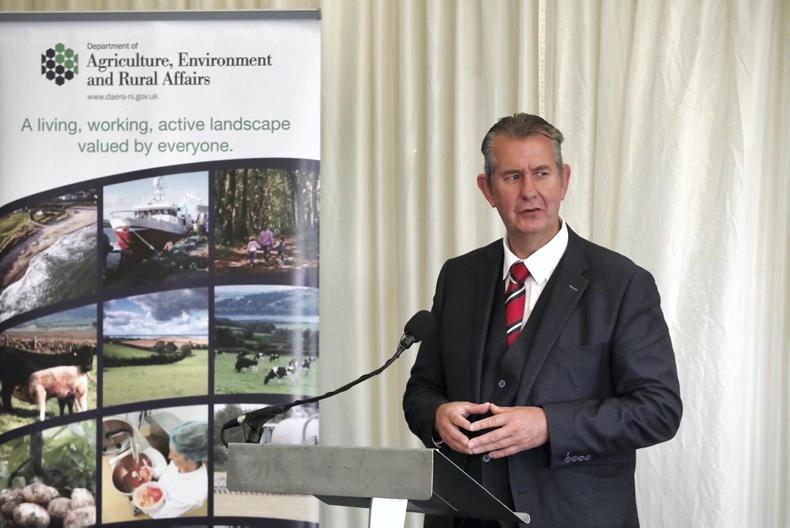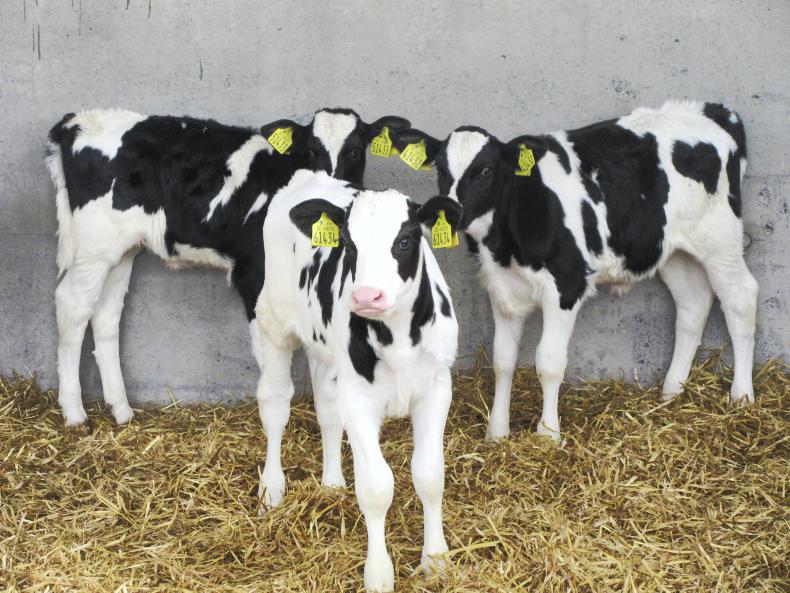The NI protocol has both positive and negative impacts on the local farming industry, Agriculture Minister Edwin Poots has said.
Speaking to farmers on Tuesday evening, Minister Poots said he believed there is scope to break the current impasse on the thorny issue.
“There are solutions there, but we need to work them through,” he said at the meeting in Hillsborough, Co Down.
The DUP politician was pragmatic in his tone when asked by a local farmer about the impact of the protocol on NI agriculture.
He acknowledged that the protocol gives the NI agri food sector unfettered access into the EU single market. In particular, this allows milk and lamb from NI to move into the Republic of Ireland for processing, while pigs move in the opposite direction.
“But in terms of imports, we are definitely in a worse place [under the NI protocol],” Minister Poots said.
Key problems for NI farmers surround the import of seeds, plant protection products, and veterinary medicines from Britain. These issues are set to worsen if current grace periods expire, and the protocol is implemented in full.
The other problem raised by the DAERA Minister was the level of checks that his staff are required to conduct at NI ports on goods that are shipped from Britain. He said this currently costs taxpayers £10m per year, but it could reach £40m if the protocol is fully implemented.
The comments were made as technical talks between the UK and EU on the NI protocol officially resumed after an eight-month break.
“There may well be a deal done. We will be putting on pressure for it,” Minister Poots said.









SHARING OPTIONS